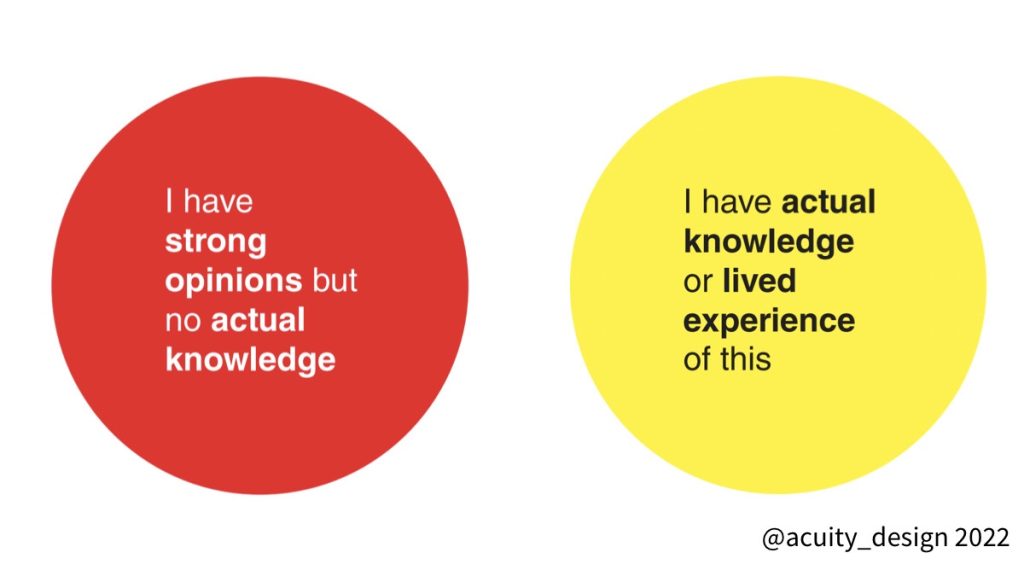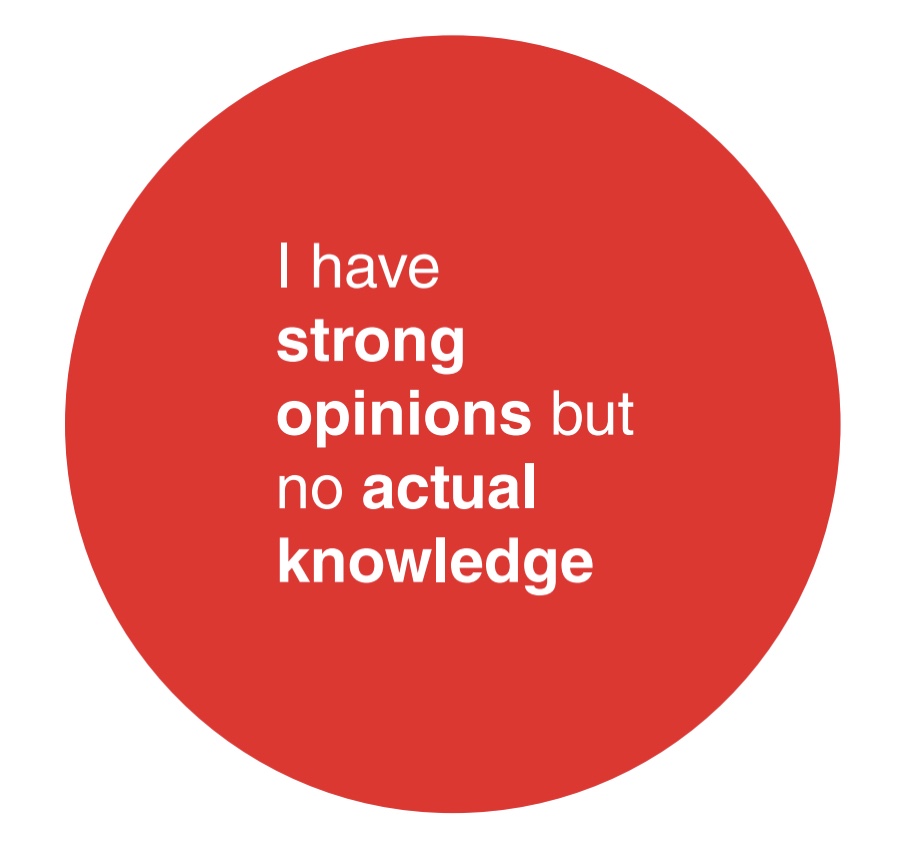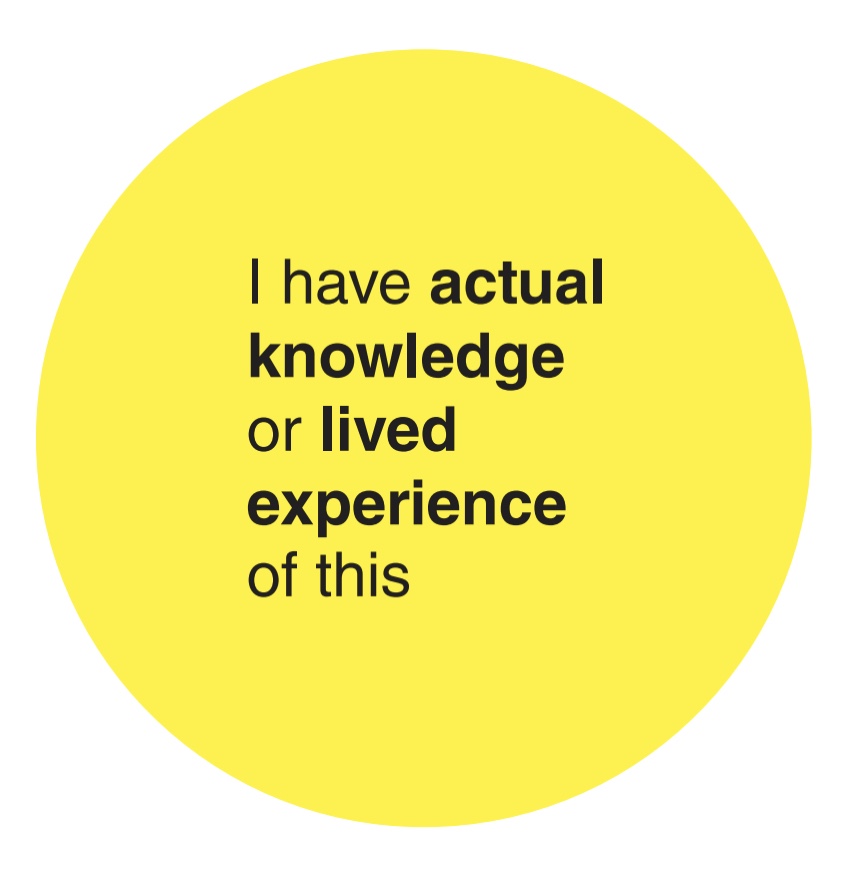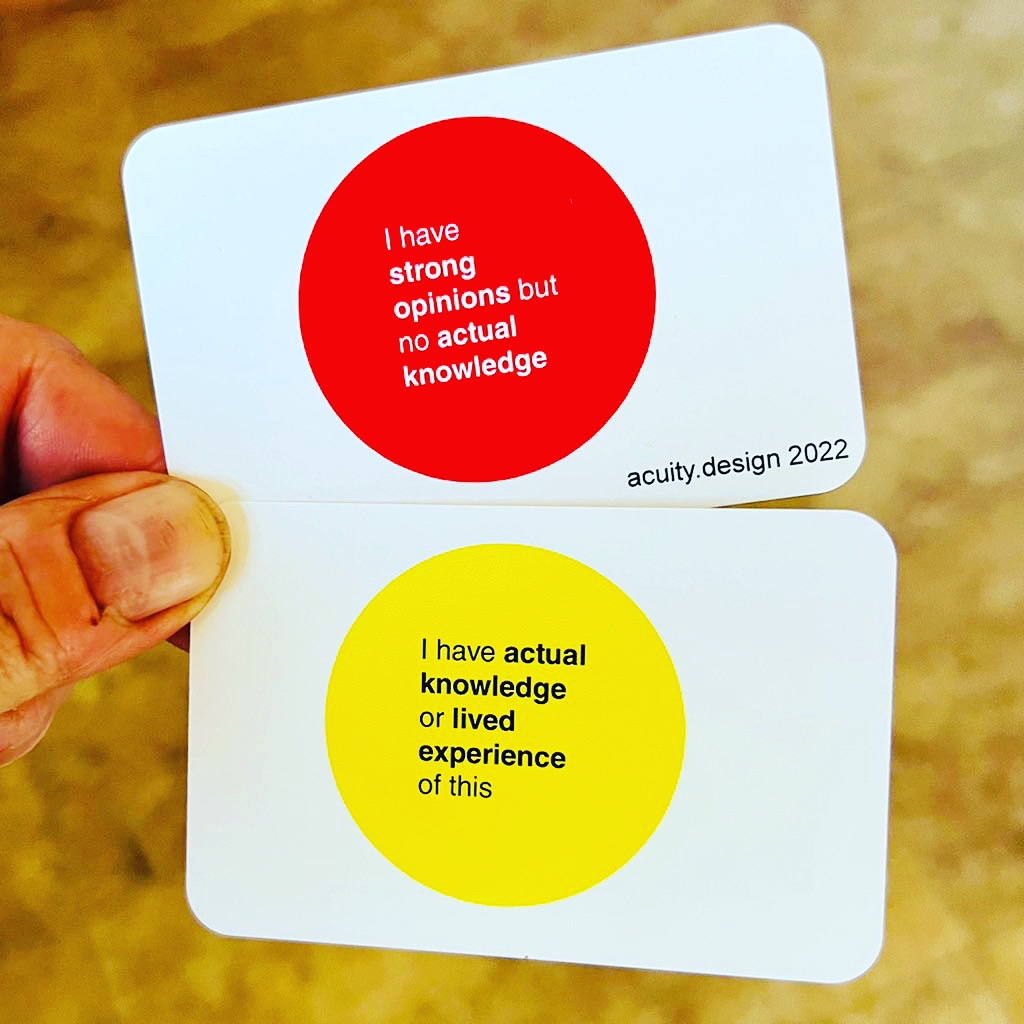
I have made some new stickers and cards for the workshops I facilitate. They are deliberately pointy to force participants to think about how they value their own knowledge and the knowledge of people they are sharing a time and place with.
I am going to use this post to explain why I think I need them and how they build onto my existing practice.
The general context is that I often work on accessibility and codesign projects. This means that power and exclusion are always active issues. The mixture of people from different backgrounds and with wildly varying levels of ‘valid’ or ‘validated’ knowledge can be hard to manage.
I try to make that difficulty explicit as early as possible to help groups recognise, align and support each other. Rather than using the authority of a facilitator, I prefer to use the power of the community.
These stickers and cards are to make some more ideas explicit between people and within people. That will need management and deeper discussion but they are a start.
I already talk about this in workshops when sharing Codes of Conduct which include the Code of Conversation.
Code of Conversation
The Code of Conversation is simply put if you are loud and typically talk a lot then use this time together to shut up and listen more. If you are typically quiet and do not talk much then use this time together to talk and share more.
I do this at the start of workshops to make people think about how they will relate to each other.
It is also a deliberate action to take some stress off myself. Managing group conversations is hard and intervening as a facilitator is not great behaviour. By making the Code of Conversation explicit, table or Zoom groups can self-recognise what is reasonable together. Obviously, some people crash thru this kind of communal code-making but then that is when I do intervene.
Strong opinions are not bad

We are sentient. We have bodies that give us a physical perspective and from that we can all experience life and hold opinions.
Having strong opinions is not a problem. It is essential.
However, there are situations where strongly held but uninformed opinions fill the space that meaningful knowledge could have filled. This can happen in meetings and workshops when senior staff and other professionals use their position and verbal fluency to fill time and discussion with what they imagine and believe. It is not necessarily wrong but it can, in codesign and participatory design workshops, be a loss of time to listen to more people and more ideas.
This card is difficult because it demands a level of self-awareness and metacognition that is not easily learnt or generally taught. We live in a society that privileges talking and most professionals expect to fill ’empty’ time with their words and ideas.
As with the Code of Conversation’s request to consider shutting up, this card is asking people to consider that their own sense of knowing and knowledge may not be the best thing to share here and now. It asks people to self-critique themselves – are they the right person to be talking now? Are there better people to listen to now?
I do not expect the stickers and cards to work well when I start using them. I am asking people to do something that is hard.
As with all of this, I know I find it hard and fail so often. These stickers and cards are about my own biases and failures as they are about facilitating better.
For now, I expect them to act as Speed Bumps. As discussed in work on Implicit Bias, what can be done is to create cracks and delays. To force people to slow down, to break their professional fluency and to give them time to think just a little more deeply.
Lived experience only exists as professional jargon

Lived experience is a phrase for knowledge held by users/citizens/people in an informal community. It is a piece of tautological professional jargon.
What lived experience is trying to say is that some forms of knowledge do not come through professional research methods and are valid even though they are not expressed in professional formats. It is a way of supporting knowledge from non-professionals.
What that means practically however, is that professionals are only willing to accept such knowledge if it listened to by them in times and places they define and control. This is the constant danger of Codesign As A Workshop: an old style exercise in consultation with more apparent listening but no greater offer of autonomy, long-term involvement or shared power than previously.
So this sticker or card is again problematic. The message only really makes sense to professionals who sort knowledge into such silos as actual or lived experience. For anyone outside of that kind of thinking (that is the actual people with lived experience), the phrases are deeply odd. How can living and experience be divided? How can how you live and what you know be split from where you have lived and who you live with?
Thus the card is not really for helping people with lived experience to speak up. It is not about building confidence up. It is like other message about self-awareness for professionals and creating a metacognitive shift in personal certainty and confidence.
The message is to pause and to hold a space to listen for people who are in the room who do have knowledge that is overlooked, under-regarded and ignored as invalid. It is about using power to enable others to speak up and to speak out.
Building on the Code of Conversation idea of using the time together to speak even when typically you do not, this is about professionals actively helping people speak out.
Perhaps this will work. I hope so. I cannot alone help people speak up but a community can. Again this is about being explicit to enable positive actions. Many people are trapped by roles and ways of being that are imposed on them by historic and embedded professional work patterns. Some people use their power because they do not have the confidence to let go of it. Sometimes (but definitely not in all circumstances) they need some doorway to access a different way of being and acting.
That is what the stickers and cards are an attempt to do.
I will experiment with them to find out.
Update

All the cards and stickers have arrived from the printers. All looking good. Looking forward to trying them out.